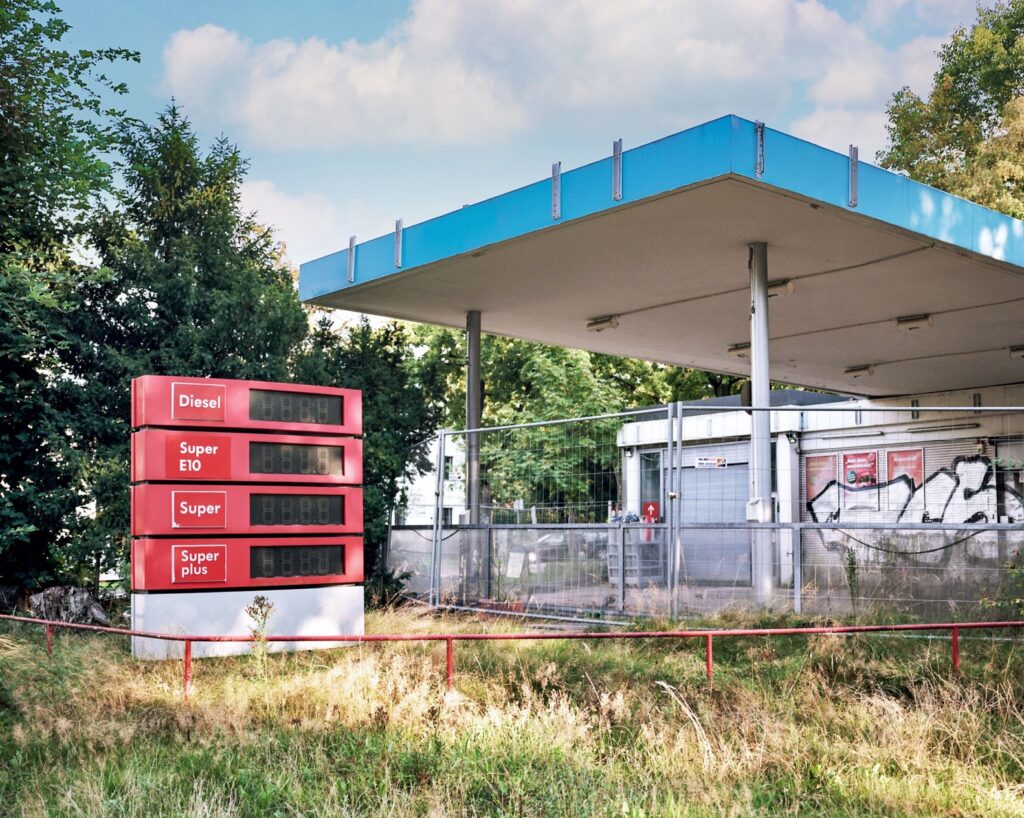
On July 16, the Chatham County Board of Commissioners voted to change the zoning of a portion of the historic Bethesda Academy’s 635-acre tract of rural land to allow for the construction of a gas station. Despite appreciable opposition from neighboring residents, the vote was unanimous. There was no indication that anyone (other than Enmarket and the Bethesda Academy Board of Governors) wants or needs another gas station in this picturesque corner of Chatham County.
There are many reasons to object to the depressingly routine practice of changing zoning for the sole purpose of accommodating a landowner’s speculative attempt to maximize the financial rewards of land ownership – often by proposing unneeded projects. However, I would like to focus on the folly of defacing a treasured landscape with, of all things, a gas station.
In the not-too-distant future, gas stations will become obsolete, and thousands of abandoned stations will blight the country. As hard as it is to imagine the disappearance of this ubiquitous fixture of American life, the writing is on the wall due to the widely anticipated rapid adoption of electric cars.
General Motors recently announced that by 2035 all their vehicle models will be electric. By 2030, VW expects 50% of US sales to be electric vehicles, and Ford says all their cars sold in Europe will be electric. Be ready for more such announcements as car companies scramble for a share of a burgeoning global market for electric vehicles.
Here in Georgia, the Korean automaker, Kia, which produces 340,000 vehicles a year at their Troup County factory, is investing $25 billion to transition their production to electric cars. Encouraged by this development and the in-state presence of several related businesses, Governor Kemp launched a new initiative to boost the expansion of the industry in Georgia.
“Georgia has a proven track record of investing early in the resources and infrastructure needed to connect it to the world and develop jobs of the future,” Kemp said. “The Electric Mobility and Innovation Alliance will ensure that our state is positioned to continue leading the nation in the rapidly growing electric mobility industry.”
Pat Wilson, Commissioner of the State Department of Economic Development, said “We’re probably going to see more change in the next 20 years in the auto industry than we’ve seen in the past 100 years.”
Even before the rise of the electric car, the tightening of fuel efficiency standards and other factors have triggered a downward trend in the total number of gas stations operating in the US since 1994. According to the management consulting firm, Boston Consulting Group, 80% of gas stations could be out of business by 2035.
Converting gas stations to electrical charging stations will not save them since people charge their batteries at home, work, or other places where they typically park. There will be no need to drive somewhere special just to recharge. Pasquale Romano, CEO of the electric car infrastructure company, ChargePoint, Inc., told the Wall Street Journal that gas stations are “an artifact of the fuel choice that we’ve used for the last 100 years.”
Local governments should become aware of these developments and adopt policies to prevent the overbuilding of gas stations within their jurisdictions. Overbuilding retail space, especially gas stations, causes blight. Gas stations are particularly notorious for clustering together on intersections to compete for a share of a dwindling market. The losers in these competitions become eyesores and often leave a toxic legacy from leaking underground storage tanks. This has been an ongoing problem across the US for a long time and will only worsen as gas station closings accelerate.
Nevertheless, the impending disappearance of gas stations is a good thing that must happen for there to be any hope of preventing a catastrophic overheating of the Earth’s climate. The climate crisis is an unprecedented threat that will require government officials at all levels to think aggressively about how to plan for a fossil-fuel-free future.
There are encouraging signs that people are waking up to the fact that we are in a climate emergency and that the only way to avoid catastrophe is to abandon fossil fuels as quickly as possible. Local governments across the country, including Savannah, have pledged to transition to 100% clean energy - not just for buildings but also for transportation.
Given these realities, it’s hard to think of something more wasteful and irresponsible than abrogating an established land use designation to build another gas station.


This decision indicates a far too common tendency for local officials to make irresponsible decisions that favor highly speculative projects, for which little if any need is demonstrated. Furthermore, such pro-developer decisions often violate adopted land-use plans and, as in this case, prior commitments dedicating selected areas to conservation. If any benefits result - assessment of which is never required - they are primarily in the form of profits made by a few at the public's expense. Local ordinances should specifically require rigorous analysis of need for proposed land uses, especially when they conflict with existing zoning and adopted comprehensive plans.
An abandoned station is more than an old building, it's underground tanks that must be dried and drained - it's a brownfield that must be dealt with for safety and risk to the community.